|
|
|
|
|
|
|
|
|
Award Number and Duration |
|
|
|
NSF IIS 2145499 |
|
|
|
PI and Point of Contact |
|
|
|
Bei Wang |
|
|
|
Overview |
|
|
|
Data generated from multiphysics simulations, such as binary black hole mergers and fluid dynamics, have experienced exponential growth because of the growing capabilities of computing facilities. At the same time, data-intensive science relies on the acquisition, management, analysis, and visualization of data with increasing spatial and temporal resolutions. This project develops a new set of approaches to support the core tasks in scientific data visualization (such as feature tracking, event detection, ensemble analysis, and interactive visualization) in a way that is more reflective of the underlying physics using measure theory. The results will be instantiated by a collection of open-source software tools to be deployed for the collaborating scientists in materials science and high-performance computing, and the larger research community. |
|
|
|
Broader Impacts |
|
|
|
This project provides a unique environment for multidisciplinary activities and training opportunities for undergraduate and graduate students. The research will be used to enhance course materials in computational topology, data visualization, and scientific computing, and more importantly, to promote visualization as a core part of training in data science. The PI will improve the impact and accessibility of education via her public YouTube channels. The project results will help the students discover how new and advanced data visualization tools offer analytics capabilities for large and complex data. This project will have a large impact on application domains via multidisciplinary collaborations in materials sciences and high performance computing. |
|
|
|
Publications and Manuscripts |
|
|
| Manuscripts | |
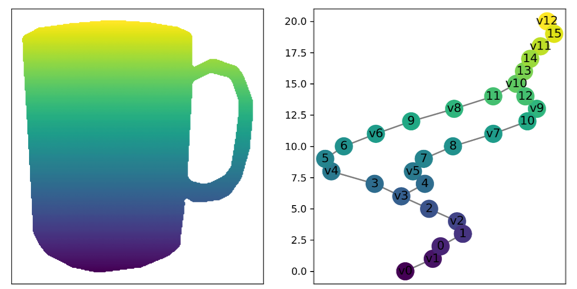
|
 Towards an Optimal Bound for the Interleaving Distance on Mapper Graphs.
Towards an Optimal Bound for the Interleaving Distance on Mapper Graphs.
Erin Wolf Chambers, Ishika Ghosh, Elizabeth Munch, Sarah Percival, Bei Wang. Manuscript, 2025. arXiv:2504.03865 |
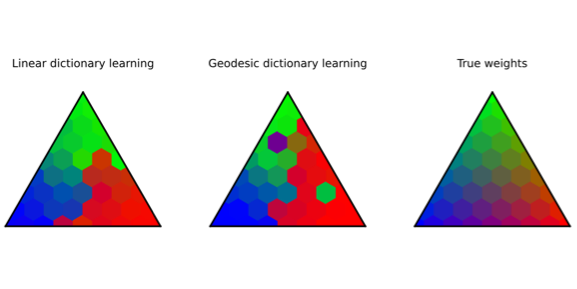
|
 Geometry of the Space of Partitioned Networks: A Unified Theoretical and Computational Framework.
Geometry of the Space of Partitioned Networks: A Unified Theoretical and Computational Framework.
Stephen Y Zhang, Fangfei Lan, Youjia Zhou, Agnese Barbensi, Michael P H Stumpf, Bei Wang, Tom Needham. Manuscript, 2024. arXiv:2409.06302 |
| Year 3 (2024 - 2025) | |

|
 Tracking Low-Level Cloud Systems with Topology.
Tracking Low-Level Cloud Systems with Topology.
Mingzhe Li, Dwaipayan Chatterjee, Franziska Glassmeier, Fabian Senf, Bei Wang. IEEE Workshop on Topological Data Analysis and Visualization (TopoInVis) at IEEE VIS, 2025. |
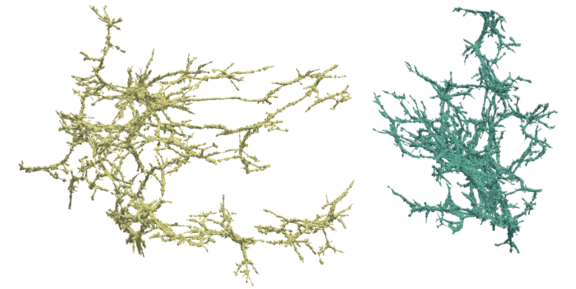
|
 Extremely Scalable Distributed Computation of Contour Trees via Pre-Simplification.
Extremely Scalable Distributed Computation of Contour Trees via Pre-Simplification.
Mingzhe Li, Hamish Carr, Oliver Rübel, Bei Wang, Gunther H. Weber. IEEE Symposium on Large Data Analysis and Visualization (LDAV), 2025. Supplement. |
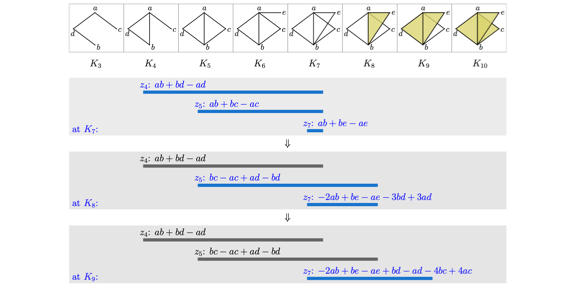
|
 Tracking the Persistence of Harmonic Chains: Barcode and
Stability.
Tracking the Persistence of Harmonic Chains: Barcode and
Stability.
Tao Hou, Salman Parsa, Bei Wang. International Symposium on Computational Geometry (SOCG), 2025. DOI: 10.4230/LIPIcs.SoCG.2025.58 arXiv:2412.15419. |
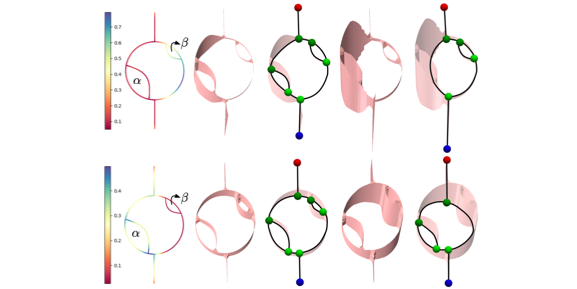
|
 Measure-Theoretic Reeb Graphs and Reeb Spaces.
Measure-Theoretic Reeb Graphs and Reeb Spaces.
Qingsong Wang, Guanqun Ma, Raghavendra Sridharamurthy, Bei Wang. Discrete & Computational Geometry (DCG), minor revision, 2025. arXiv:2401.06748. |
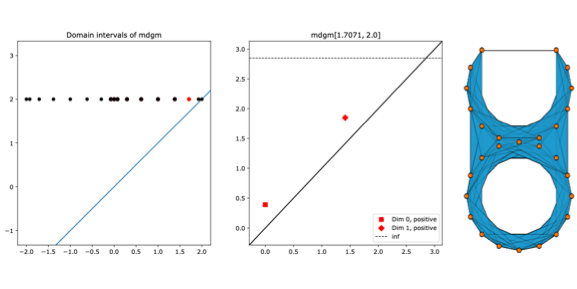
|
 Meta-Diagrams for 2-Parameter Persistence.
Nate Clause, Tamal K. Dey, Facundo Mémoli, Bei Wang.
Meta-Diagrams for 2-Parameter Persistence.
Nate Clause, Tamal K. Dey, Facundo Mémoli, Bei Wang.
Discrete & Computational Geometry (DCG), 2025. DOI: 10.1007/s00454-025-00741-6 |
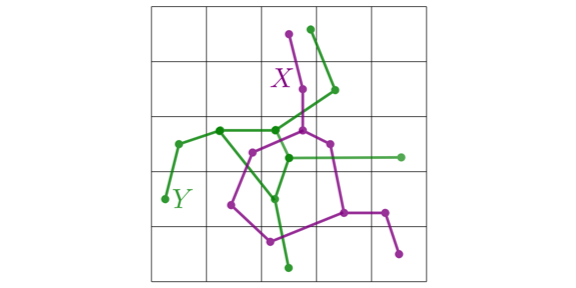
|
 Bounding the Interleaving Distance for Mapper Graphs with a Loss
Function.
Bounding the Interleaving Distance for Mapper Graphs with a Loss
Function.
Erin W. Chambers, Elizabeth Munch, Sarah Percival, Bei Wang. Journal of Applied and Computational Topology, 9, article number 19, 2025. DOI: 10.1007/s41468-025-00215-x arXiv:2307.15130 |
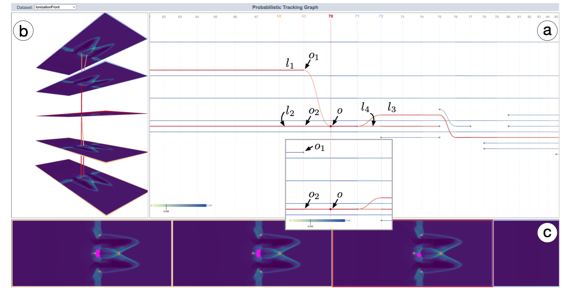
|
 Flexible and Probabilistic Topology Tracking with Partial Optimal Transport.
Flexible and Probabilistic Topology Tracking with Partial Optimal Transport.
Mingzhe Li, Xinyuan Yan, Lin Yan, Tom Needham, Bei Wang. IEEE Transactions on Visualization and Computer Graphics, 2025. DOI: 10.1109/TVCG.2025.3561300 arXiv:2302.02895. |
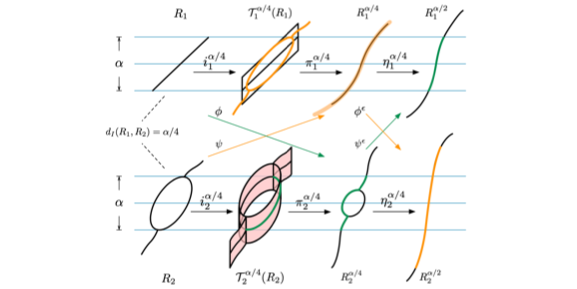
|
 Labeled Interleaving Distance for Reeb Graphs.
Labeled Interleaving Distance for Reeb Graphs.
Fangfei Lan, Salman Parsa, Bei Wang. Journal of Applied and Computational Topology, 8, pages 2367-2399, 2024. DOI:10.1007/s41468-024-00193-6 arXiv:2306.01186 |
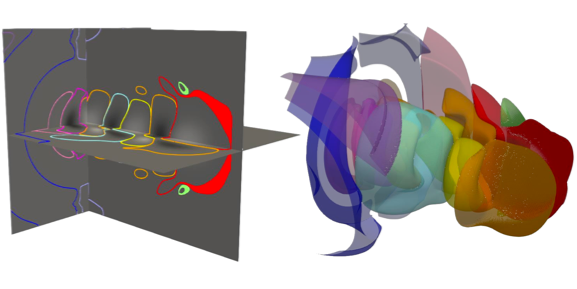
|
 Distributed Augmentation, Hypersweeps, and Branch Decomposition of Contour Trees for Scientific Exploration.
Distributed Augmentation, Hypersweeps, and Branch Decomposition of Contour Trees for Scientific Exploration.
Mingzhe Li, Hamish Carr, Oliver Rubel, Bei Wang, Gunther H. Weber. IEEE Visualization Conference (IEEE VIS), 2024. IEEE Transactions on Visualization and Computer Graphics, 31(1), pages 152-162, 2025. DOI:10.1109/TVCG.2024.3456322 arXiv:2408.04836 |
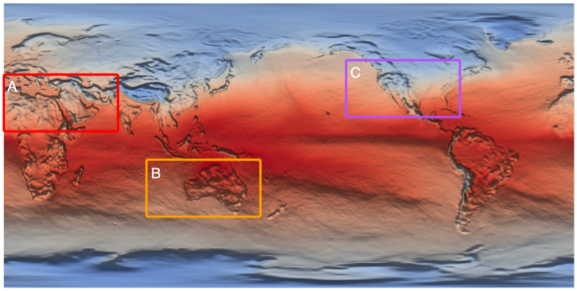
|
 Critical Point Extraction from Multivariate Functional Approximation.
Critical Point Extraction from Multivariate Functional Approximation.
Guanqun Ma, David Lenz, Tom Peterka, Hanqi Guo, Bei Wang. IEEE Workshop on Topological Data Analysis and Visualization (TopoInVis) at IEEE VIS, 2024. arXiv:2408.13193 |
| Year 2 (2023 - 2024) | |
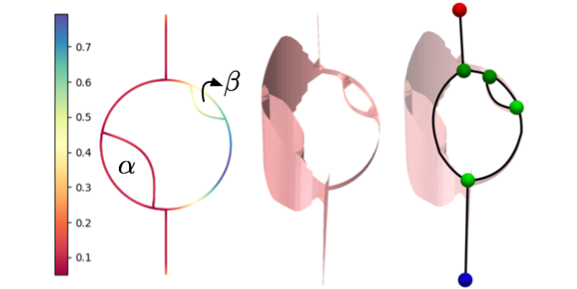
|
 Measure-Theoretic Reeb Graphs and Reeb Spaces.
Measure-Theoretic Reeb Graphs and Reeb Spaces.
Qingsong Wang, Guanquan Ma, Raghavendra Sridharamurthy, Bei Wang. International Symposium on Computational Geometry (SOCG), 2024. DOI:10.4230/LIPIcs.SoCG.2024.80 arXiv:2401.06748. |

|
 Labeled Interleaving Distance for Reeb Graphs (Abstract).
Labeled Interleaving Distance for Reeb Graphs (Abstract).
Fangfei Lan, Salman Parsa, Bei Wang. International Symposium on Computational Geometry (SOCG) Young Researcher Forum (YRF), 2024. |
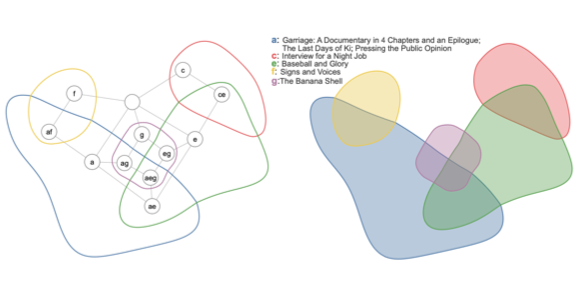
|
 EulerMerge: Simplifying Euler Diagrams Through Set Merges.
EulerMerge: Simplifying Euler Diagrams Through Set Merges.
Xinyuan Yan, Peter Rodgers, Peter Rottmann, Daniel Archambault, Jan-Henrik Haunert, Bei Wang. Proceedings of the 14th International Conference on the Theory and Application of Diagrams (DIAGRAMS), 2024. DOI:10.1007/978-3-031-71291-3_16 |
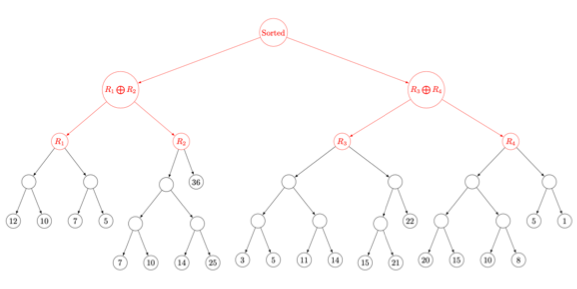
|
 PersiSort: A New Perspective on Adaptive Sorting Based on Persistence.
PersiSort: A New Perspective on Adaptive Sorting Based on Persistence.
Jens Kristian Refsgaard Schou, Bei Wang. Proceedings of the 36th Canadian Conference on Computational Geometry (CCCG), 2024. Proceedings online. |
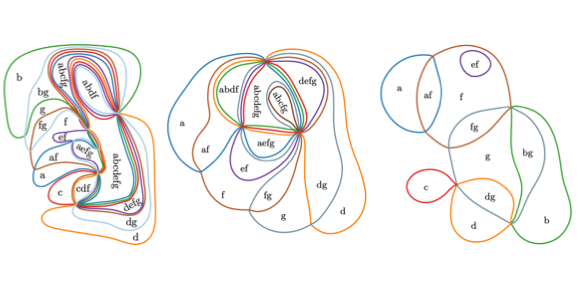
|
 Generating Euler Diagrams Through Combinatorial Optimization.
Generating Euler Diagrams Through Combinatorial Optimization.
Peter Rottmann, Peter Rodgers, Xinyuan Yan, Daniel Archambault, Bei Wang, Jan-Henrik Haunert. Eurographics Conference on Visualization (EuroVis), 2024. DOI:10.1111/cgf.15089 |
| Year 1 (2022 - 2023) | |
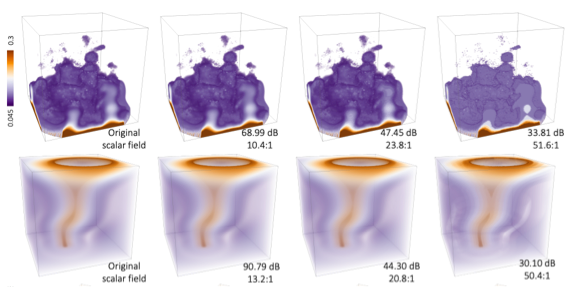
|
 TopoSZ: Preserving Topology in Error-Bounded Lossy Compression.
TopoSZ: Preserving Topology in Error-Bounded Lossy Compression.
Lin Yan, Xin Liang, Hanqi Guo, Bei Wang. IEEE Visualization Conference (IEEE VIS), 2023. IEEE Transactions on Visualization and Computer Graphics (TVCG), 30, pages 1302-1312, 2024. Supplementary Material. DOI:10.1109/TVCG.2023.3326920 arXiv:2304.11768. |
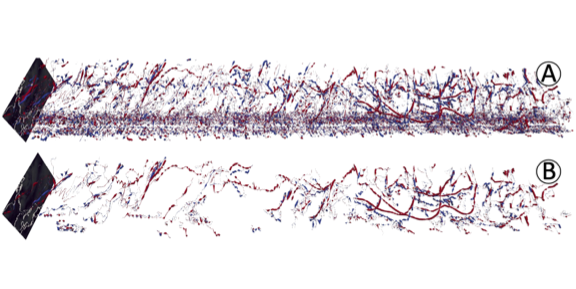
|
 TROPHY: A Topologically Robust Physics-Informed Tracking Framework for Tropical Cyclone.
TROPHY: A Topologically Robust Physics-Informed Tracking Framework for Tropical Cyclone.
Lin Yan, Hanqi Guo, Tom Peterka, Bei Wang, Jiali Wang. IEEE Visualization Conference (IEEE VIS), 2023. IEEE Transactions on Visualization and Computer Graphics (TVCG), 30, pages 1249-1259, 2024. Supplementary Material. DOI:10.1109/TVCG.2023.3326905 arXiv:2307.15243. |
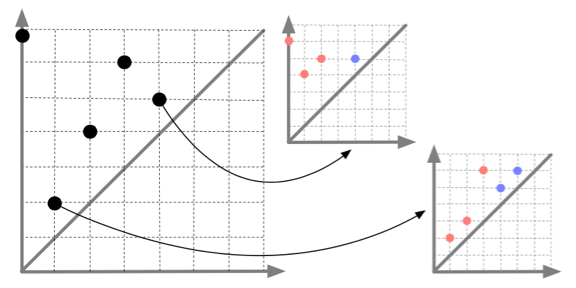
|
 Meta-diagrams for 2-parameter persistence.
Nate Clause, Tamal K. Dey, Facundo Mémoli, Bei Wang.
Meta-diagrams for 2-parameter persistence.
Nate Clause, Tamal K. Dey, Facundo Mémoli, Bei Wang.
International Symposium on Computational Geometry (SOCG), 2023. DOI:10.4230/LIPIcs.SoCG.2023.25 |
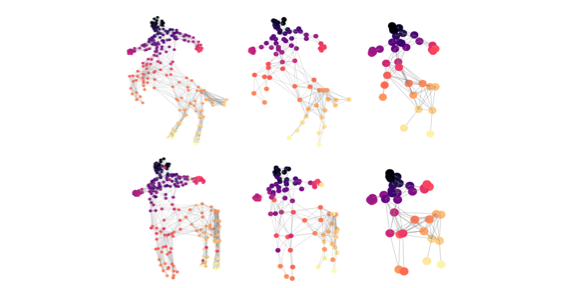
|
 Hypergraph Co-Optimal Transport: Metric and Categorical Properties.
Hypergraph Co-Optimal Transport: Metric and Categorical Properties.
Samir Chowdhury, Tom Needham, Ethan Semrad, Bei Wang, Youjia Zhou. Journal of Applied and Computational Topology, 2023. DOI:10.1007/s41468-023-00142-9 arXiv:2112.03904 |
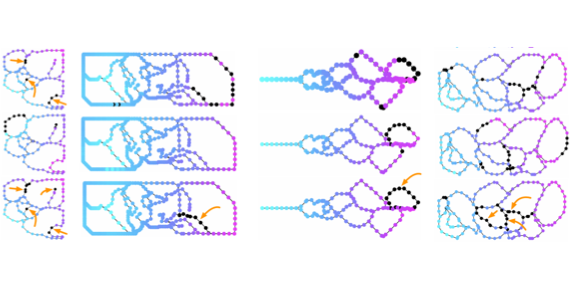
|
 Comparing Morse Complexes Using Optimal Transport:
An Experimental Study.
Comparing Morse Complexes Using Optimal Transport:
An Experimental Study.
Mingzhe Li, Carson Storm, Austin Yang Li, Tom Needham, Bei Wang. IEEE Visualization and Visual Analytics (VIS) Short Paper, pages 41-45, 2023. Supplementary Material. DOI:10.1109/VIS54172.2023.00017 |
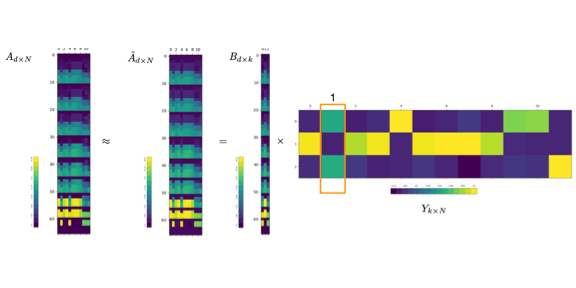
|
 Sketching Merge Trees for Scientific Visualization.
Sketching Merge Trees for Scientific Visualization.
Mingzhe Li, Sourabh Palande, Lin Yan, Bei Wang. IEEE Workshop on Topological Data Analysis and Visualization (TopoInVis) at IEEE VIS, pages 61-71, 2023. Supplementary Material. DOI:10.1109/TopoInVis60193.2023.00013 arXiv:2101.03196. |
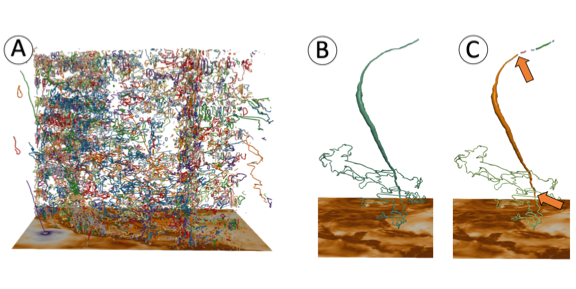
|
 Multilevel Robustness for 2D Vector Field Feature Tracking, Selection, and Comparison.
Lin Yan, Paul Aaron Ullrich, Luke P. Van Roekel, Bei Wang, Hanqi Guo.
Multilevel Robustness for 2D Vector Field Feature Tracking, Selection, and Comparison.
Lin Yan, Paul Aaron Ullrich, Luke P. Van Roekel, Bei Wang, Hanqi Guo.Computer Graphics Forum, 42(6), e14799, 2023. DOI: 10.1111/cgf.14799 arXiv:2209.11708 |
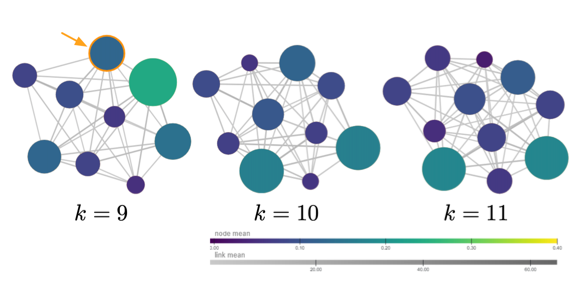
|
 Uncertainty Visualization for Graph Coarsening.
Uncertainty Visualization for Graph Coarsening.Fangfei Lan, Sourabh Palande, Michael Young, Bei Wang. IEEE International Conference on Big Data (IEEE BigData), pages 2922-2931, 2022. DOI: 10.1109/BigData55660.2022.10021039 |
|
|
|
Presentations, Educational Development and Broader Impacts |
|
|
| Year 3 (2024 - 2025) |
|
| Year 2 (2023 - 2024) |
|
| Year 1 (2022 - 2023) |
|
|
|
|
Students |
|
|
|
Nathaniel Gorski (Ph.D. student) School of Computing and Scientific Computing and Imaging Institute University of Utah Dhruv Meduri (Ph.D. student) School of Computing and Scientific Computing and Imaging Institute University of Utah Guanqun Ma (Ph.D. student) School of Computing and Scientific Computing and Imaging Institute University of Utah |
|
|
|
Collaborators |
|
|
|
Dr. Lin Yan, Environmental Science & Mathematics and Computer Science, Argonne National Laboratory, Lemont, USA Dr. Paul Aaron Ullrich, Department of Land, Air and Water Resources, University of California, Davis, USA Dr. Luke P. Van Roekel, Fluid Dynamics and Solid Mechanics, Los Alamos National Laboratory Los Alamos, USA Dr. Hanqi Guo, Department of Computer Science and Engineering, The Ohio State University, Columbus, USA |
|
|
|
Acknowledgement |
|
|
|
This material is based upon work supported or partially supported by the National Science Foundation under Grant No. 2145499. |
|
|